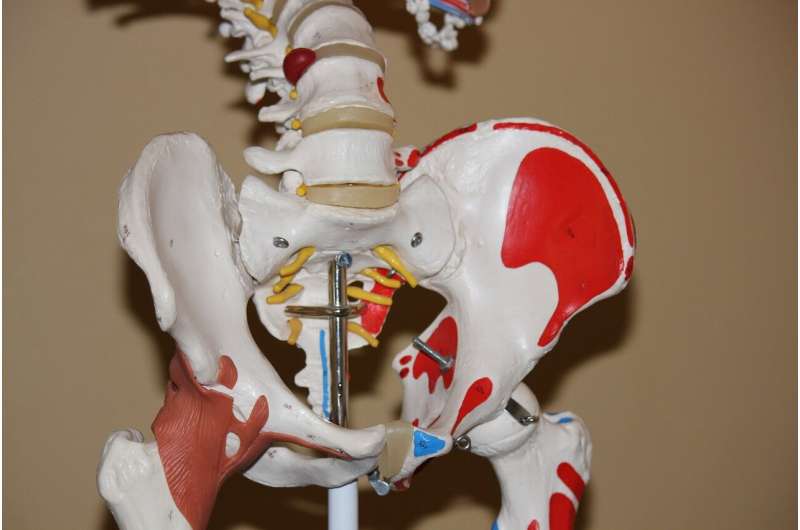Credit: Pixabay/CC0 Public Domain
The higher the proportion of primary hip replacement operations a surgeon performs annually, the better the results are, a thesis at the University of Gothenburg shows. On the other hand, it makes little difference to the patient whether the operating surgeon is a fully trained specialist in orthopedics or a resident physician being trained as an orthopedic specialist.
The starting point for the research was the discussion on "surgeon-specific outcomes"—that is, the quality of the results achieved by individual operating surgeons. Some countries have already introduced quality registers for hip replacements, also known as hip arthroplasty, so that individual surgeons get feedback on their own results.
The thesis at Sahlgrenska Academy, University of Gothenburg, clarifies factors that may be important in the creation of a Swedish model for this type of feedback. The author is Per Jolbäck, a registered orthopedic nurse at Skaraborg Hospital.
Much of the research is based on information from public inpatient care in Region Västra Götaland, combined with data from the Swedish Hip Arthroplasty Register. The patients concerned had undergone primary hip arthroplasty due to arthrosis in the hip joint.
Long experience not crucial
The finding that the more often a surgeon performed the operation the better the results were emerged when particulars of 12,100 operations in Västra Götaland from 2007 to 2016 were studied. The criterion was the proportion of operations in which postoperative complications arose within 90 days. These complications were both medical, such as clots in the leg or lung, or pneumonia, and surgical, due to, for example, wound infections, hip dislocation, or repeat operations.
"This shows that the healthcare authorities should consider planning for each surgeon to carry out a higher proportion of primary hip replacement operations," Jolbäck says.
How long the surgeon had been an orthopedic specialist, on the other hand, was not a crucial factor associated with the patients' health gains and pain levels. Patients operated on by resident physicians reported slightly lower satisfaction with the results compared with those whose surgeons had the longest specialist experience, but the differences were minor. This component study in the thesis covered 6,713 primary hip replacements under the aegis of the Region Västra Götaland healthcare authorities in 2007–2012.
Hopes and fears
"The conclusion is that patients can expect the same benefits in terms of health, pain relief and satisfaction with the operation outcome, irrespective of how long the surgeon has been a specialist in orthopedics," Jolbäck says.
The thesis also includes an interview study involving 19 doctors, four resident physicians and 15 orthopedic specialists, at 15 hospitals around Sweden. Perceptions of a quality register for surgeon-specific results proved to vary. Interviewees expressed both hopes that it would develop the profession further and fears that surgeons might come in for misdirected criticism.
"The annual volume of operations per surgeon and personal feedback are pieces of evidence that may help further to improve the situation a bit for patients undergoing hip replacements."
More information: Outcomes following primary total hip arthroplasty. With focus on the surgeon & surgeons' perceptions about feedback. hdl.handle.net/2077/62220
Provided by University of Gothenburg




















